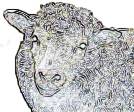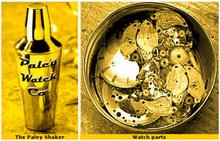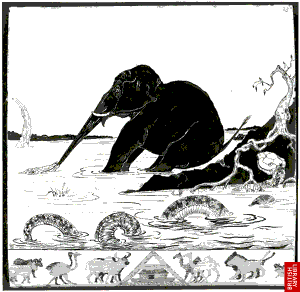The identification of an extremely well preserved 30-million-year old fossilised beak raises interesting questions over why evolution has left the birds so little changed over such a long period.
The nearly complete beak of the 30-million-year old fossil, found in the Luberon area of south-eastern France, resembles those of the seven modern pelican species so closely that it falls within the genus Pelecanus.
Pelican beaks are the longest of any living birds. Beneath the beak is a flexible pouch that allows the birds to capture their prey in the water, then spit out the water before swallowing their meal. Like other bird beaks, they are rarely preserved as fossils, so little had been known about their early evolution.
Storyteller: Antoine Louchart of the University of Lyon, France.
Source: Pelican fossil poses evolutionary puzzle




.jpg)









4 comments:
Hi Dolly,
Thanks for the site. Do you have a theory on the relationship between science and stories?
Would it be that science is raw numbers that we long to somehow humanize by turning them into a story?
Just wondering,
Dave Duffy
Kingsburg, CA
Hi Dolly,
Love the stories. Any theories on the interaction between raw data (a column of numbers and mathematical formulations) and the stories and ideas we give to make sense of the data?
Dave Duffy
Kingsburg, CA
The identification of an extremely well preserved 30-million-year old fossilised beak
raises interesting questions over why evolution has left the birds?
or a particular bird
so little changed over such a long period....that is simply
Changes in beak's are in abundance
in several species that differenciated in the last 10 million years
Interesting question Dave! I think science often reveals the opposite of what is logical or intuitive to us. We cannot stand this cognitive dissonance so we make up stories to fill in the gaps. Depending on whether you are a materialist or not, your story would differ enormously.
Post a Comment